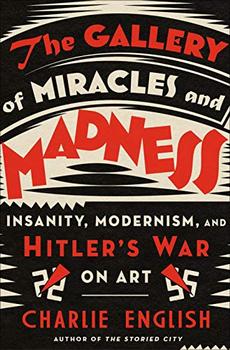Summary | Excerpt | Reviews | Beyond the book | Read-Alikes | Genres & Themes | Author Bio

The Race to Rescue a Nation's Treasures from the Nazis
by Robert M. EdselIt is a struggle epitomized by the fate of da Vinci's The Last Supper. It wasn't a code or a mystery, but a task of herculean and largely unsung effort: How to protect Italy's cultural treasures – some of the greatest art that Western Civilization has ever known – from both the Nazis and the ravages of war.
The Last Supper, already deteriorating due to the ravages of time, was further damaged in 1943 when an Allied bomb directly hit the building that housed it. The only thing that preserved this most famous mural was the protective sandbagging and scaffolding that prevented the wall from crumbling and the mural from bomb debris damage. But for the foresight to protect and the impetus to repair and restore the famous painting, it well might have been lost.
Word that The Last Supper had been saved from near distruction reached American ears and, just days after, an article was run in the New York Times. It announced the creation of what became popularly known as the Roberts Commission, a presidentially-appointed commission, headed by Supreme Court Justice Owen J. Roberts. It brought together some of America's foremost cultural and political leaders and charged them with the protection and salvage of art and historical monuments in the war zone. This led to the creation of the Monuments Men – military officers tasked with carrying out the charge of the Roberts Commission. The first of these Monuments Men was embedded with the troops invading Sicily, and they continued their mission through the remainder of World War II. Saving Italy brings to life both the stories of the Italian art rescued, protected and restored by the Monuments Men, and the fascinating histories of the men themselves.
In addition to recounting the tales of the Monuments Men in Italy, author Robert M. Edsel reports on a fascinating story of intrigue. As the order came down from the highest levels of the Nazi government to transport famous works of art from Italy into Germany, an otherwise obscure Nazi general named Karl Wolff seized control of the art, using it as a bargaining chip to negotiate a secret surrender. The negotiations, code-named "Operation Sunrise" offer a little explored perspective on the end of the war in Italy.
The first sections of Saving Italy set the stage and characters for the reader. Because of this, they are detail-heavy and do not move as quickly as the rest of the book. However this is merely a temporary status. Once the scene is set, what could have been a dull, dry exercise in an obscure area of history is rendered in vivid strokes by Edsel's prose. He is adept in using the drama of real life to lend interest to his topic.
Clearly passionate about his subject, Edsel adorns each section of the book with the fruits of his (obviously copious) labors. Written for general readers, not academics, Saving Italy serves as an unexpectedly thrilling coda to the more usual World War II fare. Fans of art history will alternately cringe and cheer as some of the world's most well known works of art swing into and out of peril.
![]() This review was originally published in The BookBrowse Review in June 2013, and has been updated for the
February 2014 edition.
Click here to go to this issue.
This review was originally published in The BookBrowse Review in June 2013, and has been updated for the
February 2014 edition.
Click here to go to this issue.

If you liked Saving Italy, try these:

by Derek B. Miller
Published 2025
From the Dagger Award–winning author of Norwegian by Night comes a vivid, thrilling, and moving World War II art-heist-adventure tale where enemies become heroes, allies become villains, and a child learns what it means to become an adult—for fans of All the Light We Cannot See.

The Gallery of Miracles and Madness
by Charlie English
Published 2021
The untold story of Hitler's war on "degenerate" artists and the mentally ill that paved the way for the Holocaust.
Your guide toexceptional books
BookBrowse seeks out and recommends the best in contemporary fiction and nonfiction—books that not only engage and entertain but also deepen our understanding of ourselves and the world around us.